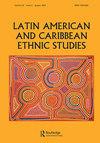Representation of indigenous peoples in times of progressive governments: lessons learned from Bolivia
IF 0.6
Q4 ETHNIC STUDIES
引用次数: 5
Abstract
ABSTRACT Indigenous peoples in Latin America are historically underrepresented in elected bodies. In 2009, Bolivia introduced a new mechanism for direct representation to counteract this systematic representation gap, securing 7 of 130 seats (5.4%) in the national parliament for indigenous peoples of the lowlands. The reform was part of a series of implementation conflicts related to a new vision of plurinational state-building, included in the new 2009 Constitution. Although most indigenous organizations were seeking a ‘power-sharing’ agreement with direct representation for all indigenous nations, the new government, led by President Evo Morales, successfully intervened in favor of a minority protection scheme. Furthermore, for the direct representatives, the room to maneuver left was severely limited, leaving little space to act on behalf of their minority constituencies. Curiously, this reduced version of direct representation is nonetheless the most advanced in Latin America. The Bolivian case provides important lessons on the ‘de-monopolization’ of political parties as a key factor in the effective representation of indigenous peoples in parliament, as well as on the importance of a goal-oriented design for electoral mechanisms focusing on substantive representation.进步政府时期土著人民的代表权:从玻利维亚吸取的教训
拉丁美洲原住民历来在民选机构中代表性不足。2009年,玻利维亚引入了一种新的直接代表制机制,以弥补这种系统性代表权差距,为低地土著人民在全国议会中获得了130个席位中的7个(5.4%)。这项改革是一系列执行冲突的一部分,这些冲突与2009年新宪法中包含的多民族国家建设的新愿景有关。虽然大多数土著组织都在寻求与所有土著民族直接代表的“权力分享”协议,但由埃沃·莫拉莱斯总统领导的新政府成功地进行了干预,支持少数民族保护计划。此外,对于直接代表来说,回旋余地非常有限,几乎没有空间代表他们的少数选民采取行动。奇怪的是,这种简化版的直接代表制在拉丁美洲却是最先进的。玻利维亚的案例提供了重要的经验教训,说明政党的“去垄断”是土著人民在议会中有效代表权的关键因素,也说明了以目标为导向、注重实质性代表权的选举机制设计的重要性。
本文章由计算机程序翻译,如有差异,请以英文原文为准。
求助全文
约1分钟内获得全文
求助全文
来源期刊

Latin American and Caribbean Ethnic Studies
Social Sciences-Cultural Studies
CiteScore
1.30
自引率
16.70%
发文量
22
 求助内容:
求助内容: 应助结果提醒方式:
应助结果提醒方式:


